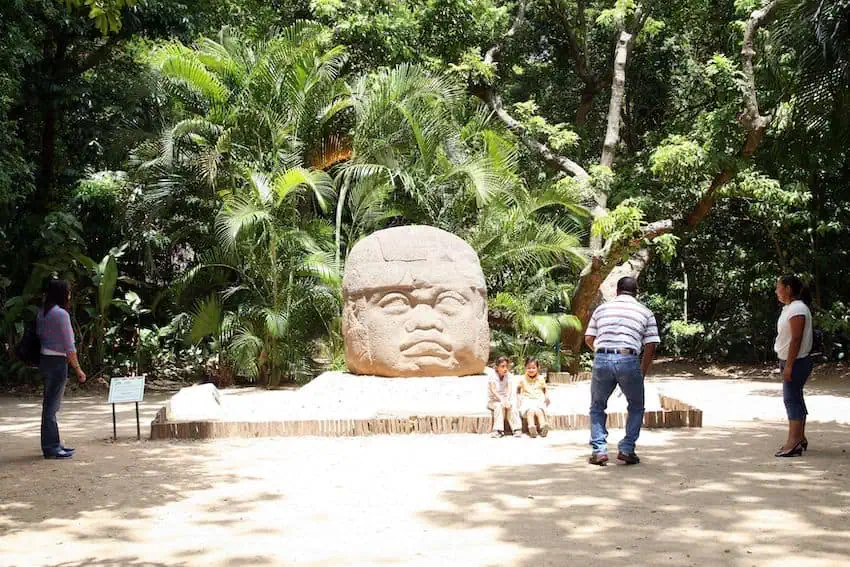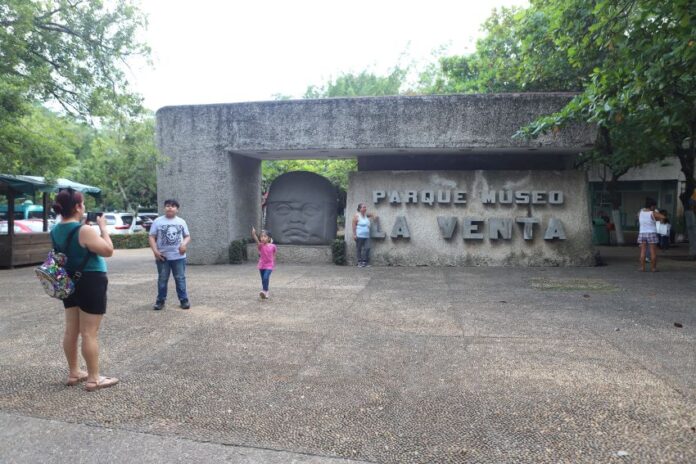Thousands of locals are protesting the construction of a major new museum in Villahermosa, the capital of the southeastern state of Tabasco, citing a risk of ecocide.
In December 2024, the National Institute of Anthropology and History (INAH) announced plans to develop a 14,700-square-meter Olmec museum, choosing the underused grounds of the zoo in the Tomás Garrido Park in Villahermosa as the development site.
#LoÚltimo 🔴Un grupo de ciudadanos, se reúnen en el Parque Tomás Garrido para llevar a cabo una Asamblea Ciudadana en Defensa del Parque Museo La Venta, los activistas insisten en que de construirse el proyecto del nuevo Museo Nacional Olmeca, en esta zona, se afectará el medio… pic.twitter.com/XCSHxNNYD4
— xevt – xhvt (@xevtfm) June 14, 2025
The park, created by the Tabasco poet Carlos Pellicer Cámara to be a harmonious space where culture and nature meet, was inaugurated in 1958 and has since been considered the “green lung” of the city.
The seven-hectare park houses 33 Olmec monuments, including altars, stelae, colossal heads and monoliths dating from between 1300 and 200 BCE, most of which were moved to Villahermosa in the 1950s from the nearby ancient pre-Hispanic city of La Venta.
The proposed National Olmec Museum, designed by architect Enrique Norten, is meant to house those artefacts, protecting them from the elements. The museum’s structure would also include workshops, storage rooms, laboratories and a temporary exhibition hall.
But the rainforest park is also home to trees such as the cedar, royal palm, ceiba and flamboyant, as well as flowering plants such as orchids and bromeliads. The thousands of residents in Villahermosa who are protesting the development are concerned that the museum’s construction would endanger those species.

A petition posted on Change.org, titled “Demand the Cancelation of the National Olmec Museum,” has collected nearly 60,000 signatures. In addition, hundreds of people marched across the city in protest of the development earlier this month, while others took to social media to voice their opposition.
“The proposal to build the National Olmec Museum on park land is a threat that could destroy hundreds of endemic tree species and, consequently, cause an irreparable loss of biodiversity in our city,” the petition’s creator, Luis Felipe Cornelio Priego, said. “Furthermore, this project threatens the work and vision of the prestigious poet Carlos Pellicer Cámara.”
INAH Director General Diego Prieto said the plan for the museum arose following a United Nations Educational, Scientific, and Cultural Organization (UNESCO) recommendation to relocate the pre-Columbian artefacts to protect them from rain and high temperatures. Prieto said that the museum would house the original artefacts to protect them from deterioration, while replicas would be made for Tomás Garrido Park.
INAH delegate in Tabasco Carlos Arturo Giordano added that the National Olmec Museum would be the first national museum to be constructed outside of Mexico City, giving “first-world relevance to the place where it is being built.”
Authorities have also previously stated that the project complies with the current environmental regulations.
Nevertheless, opponents argue that there are several alternative spaces, such as abandoned buildings, that would be suitable to house the museum without harming the park.
Following recent protests, Tabasco Governor Javier May Rodríguez said a public consultation would be held to decide the future of the project.
With reports from El Financiero, Excelsior and Infobae
